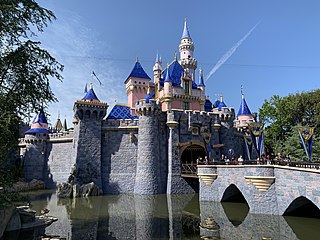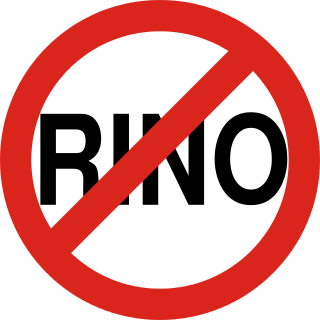
California is a state in the Western United States, located along the Pacific Coast. With nearly 39.2 million residents across a total area of approximately 163,696 square miles (423,970 km2), it is the most populous and the third-largest U.S. state by area. It is also the most populated subnational entity in North America and the 34th most populous in the world. The Greater Los Angeles area and the San Francisco Bay Area are the nation's second and fifth most populous urban regions respectively, with the former having more than 18.7 million residents and the latter having over 9.6 million. Sacramento is the state's capital, while Los Angeles is the most populous city in the state and the second most populous city in the country. San Francisco is the second most densely populated major city in the country. Los Angeles County is the country's most populous, while San Bernardino County is the largest county by area in the country. California borders Oregon to the north, Nevada and Arizona to the east, the Mexican state of Baja California to the south; and has a coastline along the Pacific Ocean to the west.

Orange County, colloquially known as OC, is a county located in the Los Angeles metropolitan area in Southern California. As of the 2020 census, the population was 3,186,989, making it the third-most populous county in California, the sixth most populous in the U.S., and more populous than 27 U.S. states and Washington, D.C. Although largely suburban, it is the second most densely populated county in the state, behind San Francisco County. The county's three most populous cities are Anaheim, Santa Ana, and Irvine, each of which has a population exceeding 300,000. Santa Ana is also the county seat. Six cities in Orange County are on the Pacific coast: Seal Beach, Huntington Beach, Newport Beach, Laguna Beach, Dana Point, and San Clemente.

Southern California is a geographic and cultural region that generally comprises the southern portion of the U.S. state of California. It includes the Los Angeles metropolitan area, the second most populous urban agglomeration in the United States. The region generally contains ten of California's 58 counties: Imperial, Kern, Los Angeles, Orange, Riverside, San Bernardino, San Diego, Santa Barbara, San Luis Obispo and Ventura counties.

Loretta Lorna Sanchez is an American politician who served in the United States House of Representatives from 1997 to 2017. A Democrat, she was first elected in 1996, when she defeated long-serving Republican congressman Bob Dornan by fewer than 1,000 votes. Sanchez represented the 46th district from 1997 to 2003, then California's 47th congressional district from 2003 to 2013, and again in the 46th district from 2013 to 2017. The district lies in central Orange County. During her time in the House of Representatives, Sanchez was a member of the Democratic Party's moderate/conservative Blue Dog Coalition.

Anaheim is a city in Orange County, California, part of the Los Angeles metropolitan area. As of the 2020 United States Census, the city had a population of 346,824, making it the most populous city in Orange County, the 10th-most populous city in California, and the 56th-most populous city in the United States. Anaheim is the second-largest city in Orange County in terms of land area, and is known for being the home of the Disneyland Resort, the Anaheim Convention Center, and two major sports teams: the Los Angeles Angels baseball team and the Anaheim Ducks ice hockey club.

Laguna Beach is a seaside resort city located in southern Orange County, California, in the United States. It is known for its mild year-round climate, scenic coves, environmental preservation efforts, and artist community. The population in the 2020 census was 23,032.

Samuel William Yorty was an American politician from Los Angeles, California. He served as a member of the United States House of Representatives and the California State Assembly, but he is most remembered for his turbulent three terms as the 37th Mayor of Los Angeles from 1961 to 1973. Though Yorty spent almost all of his political career as a Democrat, he became a Republican in 1980.

In US politics, Republican In Name Only is a pejorative used to describe politicians of the Republican Party deemed insufficiently loyal to the party, or misaligned with the party's ideology. Similar terms have been used since the early 1900s. The acronym RINO, became popular in the 1990s. Former President Donald Trump uses it to describe his critics in the Republican Party.
Social liberalism, also known as new liberalism in the United Kingdom, modern liberalism, or simply liberalism in the contemporary United States, left-liberalism in Germany, and progressive liberalism in Spanish-speaking countries, is a political philosophy and variety of liberalism that endorses a social market economy and the expansion of civil and political rights. Social liberalism views the common good as harmonious with the individual's freedom. Social liberals overlap with social democrats in accepting economic intervention more than other liberals, although its importance is considered auxiliary compared to social democrats. Further terms for social liberalism include the terms welfare liberalism, liberal paternalism, New Deal liberalism in the United States, and Keynesian liberalism. The world has widely adopted social liberal policies.
Liberal conservatism is a political ideology combining conservative policies with liberal stances, especially on economic issues but also on social and ethical matters, representing a brand of political conservatism strongly influenced by liberalism.

William H. Press is an American talk radio host, liberal pundit, and author. He was chairman of the California Democratic Party from 1993 to 1996, and is a regular CNN political contributor. His weekly column is syndicated by Tribune Content Agency.
In modern politics, law and order, also known as the war on crime, is the approach focusing on harsher enforcement and penalties as ways to reduce crime. Penalties for perpetrators of disorder may include longer terms of imprisonment, mandatory sentencing, three-strikes laws and even capital punishment in some countries.

The Freeway Series is a Major League Baseball (MLB) interleague rivalry played between the Los Angeles Angels and the Los Angeles Dodgers. The Angels are members of the American League (AL) West division, and the Dodgers are members of the National League (NL) West division. The series takes its name from the massive freeway system in the greater Los Angeles metropolitan area, the home of both teams; one could travel from one team's stadium to the other simply by driving along Interstate 5. The term is akin to Subway Series which refers to meetings between New York City baseball teams. The term "Freeway Series" also inspired the official name of the region's NHL rivalry between the Los Angeles Kings and the Anaheim Ducks: the Freeway Face-Off.
Modern liberalism in the United States, often simply referred to in the United States as liberalism, is a form of social liberalism found in American politics. It combines ideas of civil liberty and equality with support for social justice and a "checked-and-validated" market economy. Economically, modern liberalism opposes cuts to the social safety net and supports a role for government in reducing inequality, providing education, ensuring access to healthcare, regulating economic activity and protecting the natural environment. This form of liberalism took shape in the 20th century United States as the voting franchise and other civil rights were extended to a larger class of citizens. Major examples of modern liberal policy programs include the New Deal, the Fair Deal, the New Frontier, and the Great Society.

Barrioization is a theory developed by Chicano scholars Albert Camarillo and Richard Griswold del Castillo to explain the historical formation and maintenance of ethnically segregated neighborhoods of Chicanos and Latinos in the United States. The term was first coined by Camarillo in his book Chicanos in a Changing Society (1979). The process was explained in the context of Los Angeles by Griswold del Castillo in The Los Angeles Barrio, 1850-1890: A Social History (1979). Camarillo defined the term as "the formation of residentially and segregated Chicano barrios or neighbourhoods." The term is used in the field of Human Geography.

Jose Luis Correa is an American businessman and politician who is the U.S. representative for California's 46th congressional district. A Democrat, he previously served as a member of the California State Senate, representing the 34th district.
Social democracy is a left-wing political, social, and economic philosophy within socialism that supports political and economic democracy. As a policy regime, it is described by academics as advocating economic and social interventions to promote social justice within the framework of a liberal-democratic polity, a capitalist-oriented mixed economy, and a strong welfare state.
Pattern and Decoration was a United States art movement from the mid-1970s to the early 1980s. The movement has sometimes been referred to as "P&D" or as The New Decorativeness. The movement was championed by the gallery owner Holly Solomon. The movement was the subject of a retrospective exhibition at the Hudson River Museum in 2008.
Centrism is a political outlook or position involving acceptance or support of a balance of social equality and a degree of social hierarchy while opposing political changes that would result in a significant shift of society strongly to the left or the right.

The 2018 United States Senate election in California took place on November 6, 2018, to elect a member of the United States Senate to represent California, concurrently with other elections to the United States Senate, elections to the United States House of Representatives, and various state and local elections.














